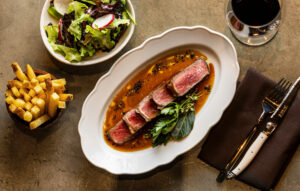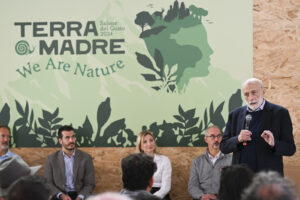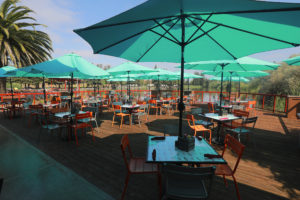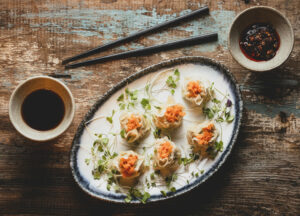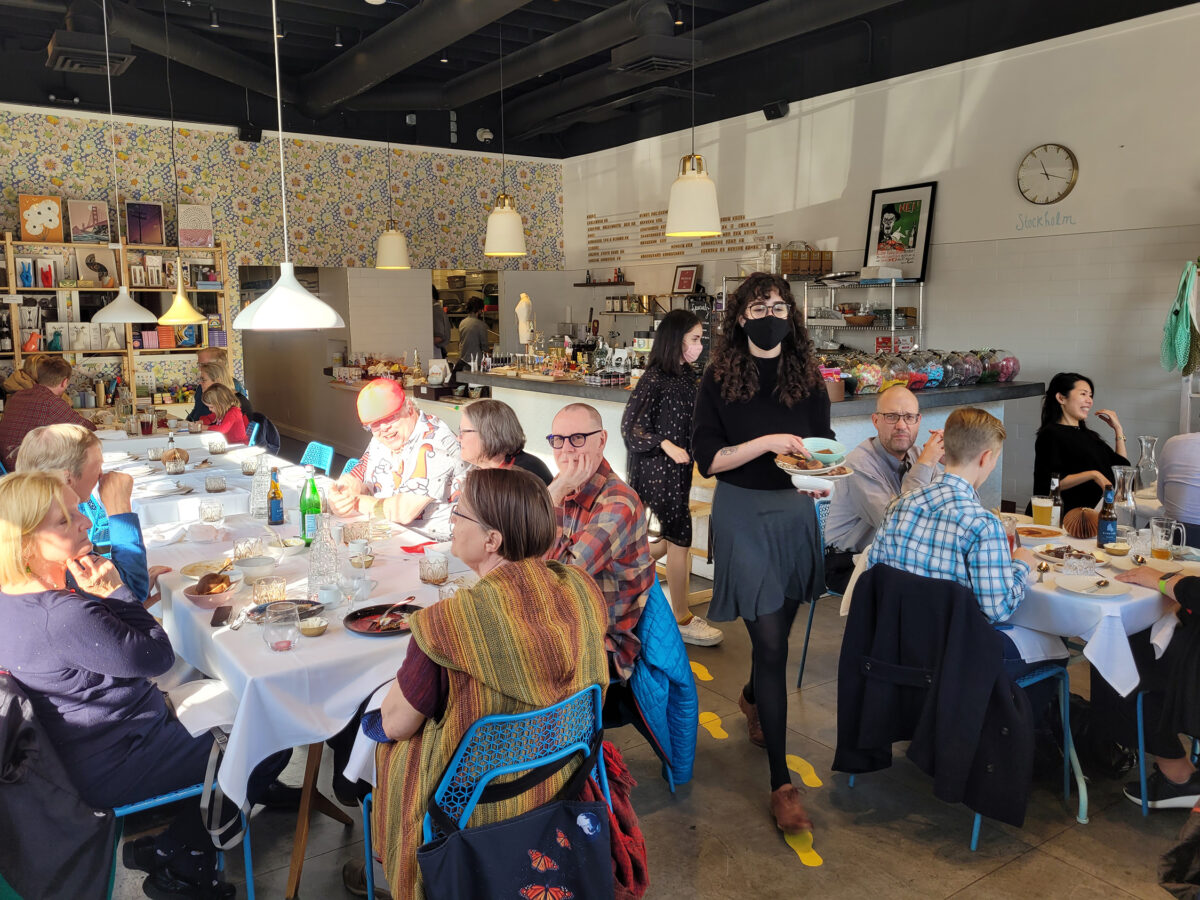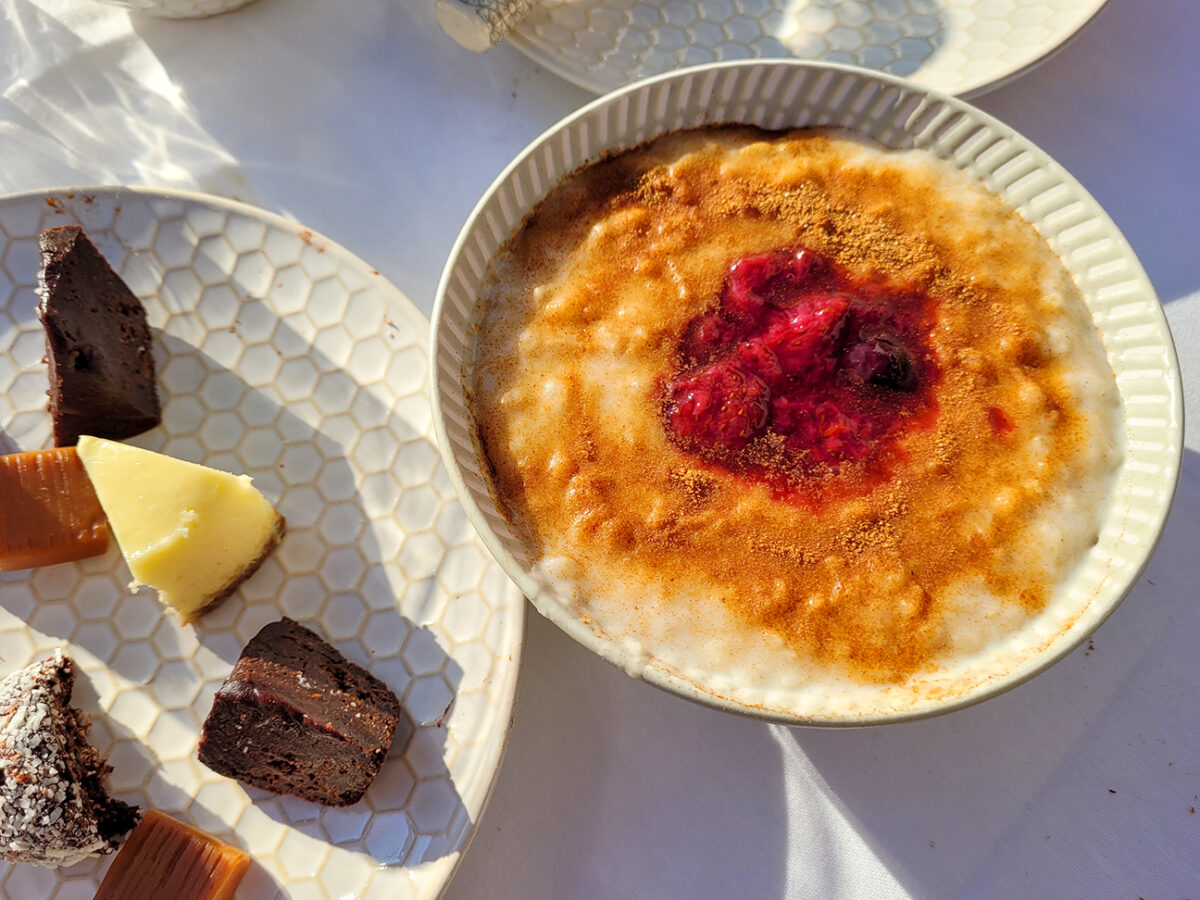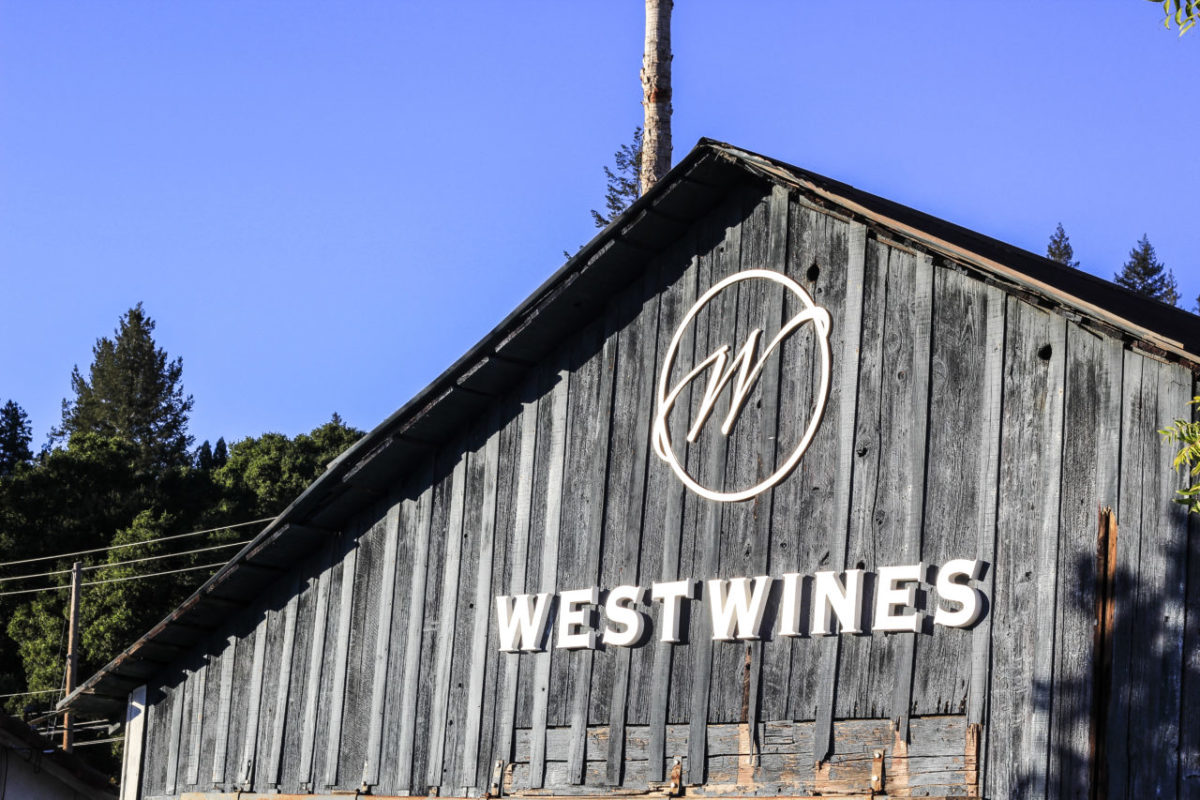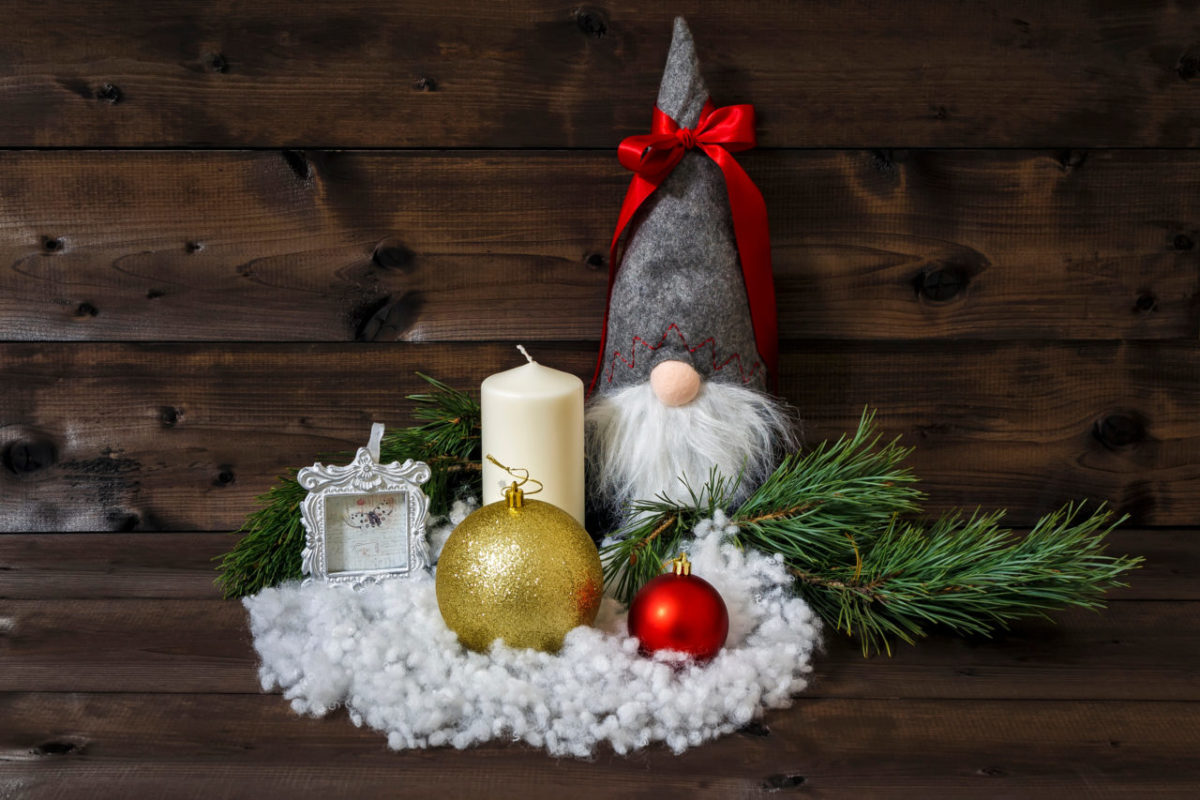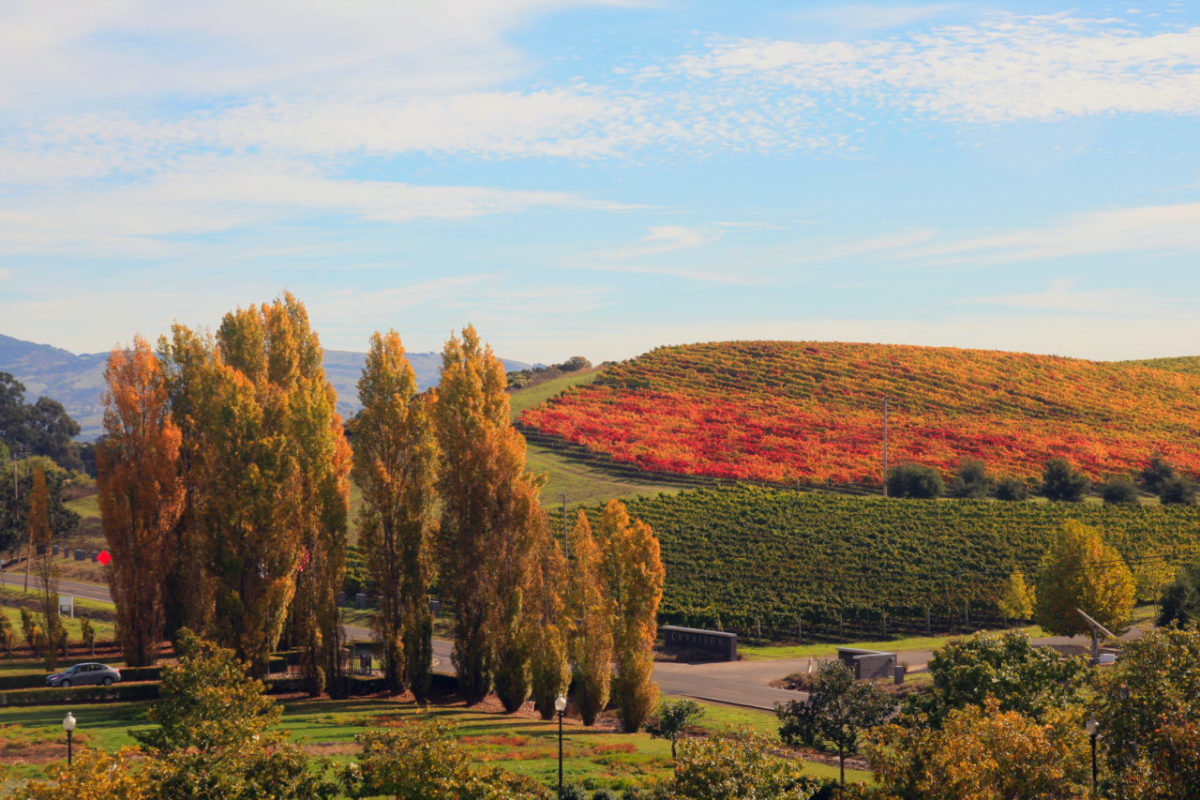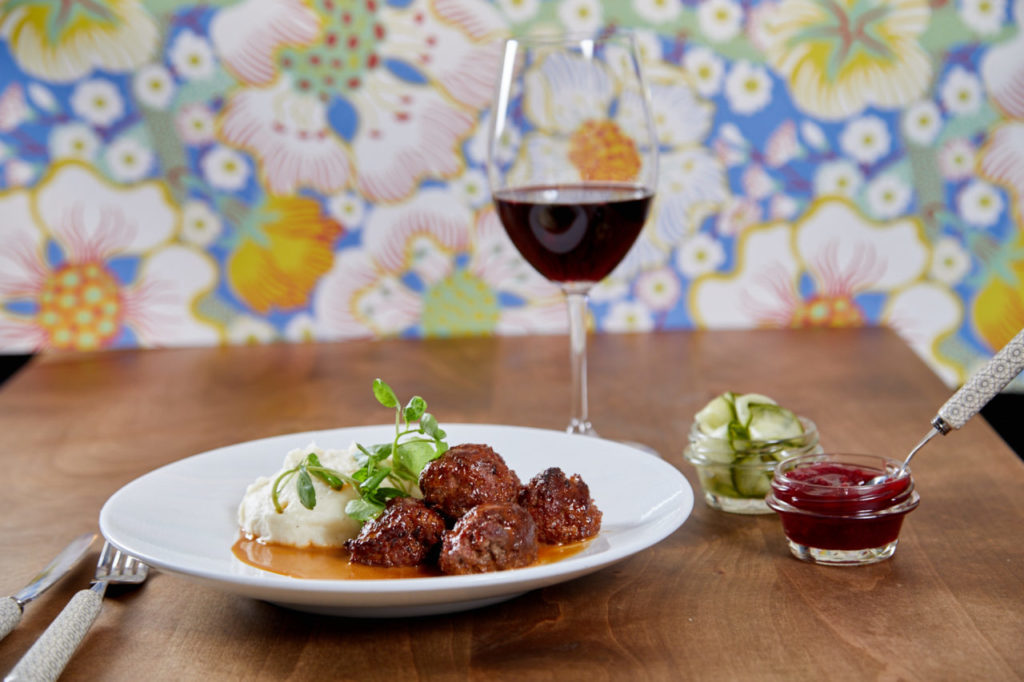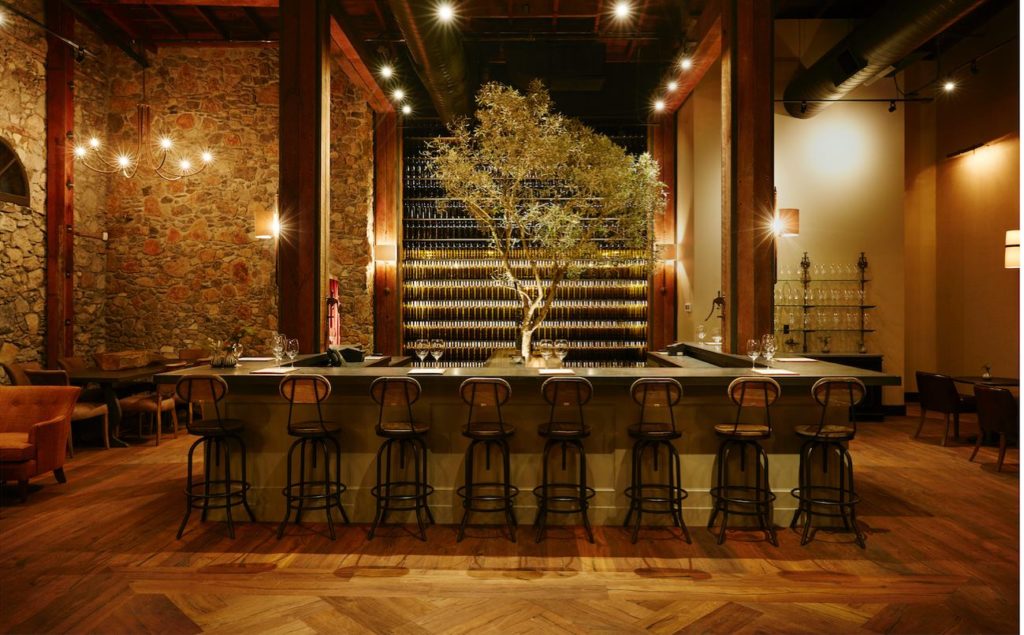Nothing tugs at a Swede’s gastronomic heart strings like glögg at a winter gathering. Just the thought of this Nordic version of mulled wine — scents of cinnamon, cardamom and cloves wafting through the house — can bring a tear to an expatriate’s eye. Next to the joys of a midsummer celebration, the winter glögg party may very well be one of the most nostalgia-inducing of Swedish traditions.
In Sweden, glögg parties kick off the holiday season in workplaces and homes. Abroad, the craving for glögg is the cause of IKEA pilgrimages. For Swedes, Christmastime hasn’t quite arrived until you’ve become suitably tipsy on mulled wine, paired with “lussebullar” (saffron buns) and “pepparkakor” (ginger cookies).
Now, Wine Country Swedes — immigrants like myself and those 25,128 Sonoma County residents claiming Scandinavian ancestry — can find their favorite warm winter drink at home instead of heading to the yellow and blue big box store in Emeryville or Palo Alto.
But you don’t have to be Swedish to enjoy a glass of glögg! Here are three local places that serve glögg paired with Swedish food and sweet treats this winter.
God jul (happy holidays) and skål (cheers)!
Pair glögg with Swedish food at Stockhome, Petaluma
The only Swedish restaurant in Wine Country will do its patriotic duty by putting on a traditional “julbord” — a family-friendly meal featuring holiday specialties — three consecutive Sundays in December (Dec. 4, 11 and 18, with seatings available at noon and 5 p.m. To-go julbord available Dec. 23. Tickets available online).
Swedish chef and restaurant owner Roberth Sundell will serve house-made glögg with candied almonds and raisins, a variety of pickled herring (mustard, grandma’s classic, saffron and leek), dill-cured salmon (“gravlax”), hot mustard-baked Christmas ham (“julskinka”), ginger-glazed spareribs, Swedish meatballs and more. For dessert, guests will enjoy Santa’s rice pudding and homemade treats. All menu items are made from scratch by chef Sundell, including a pig’s head terrine (“sylta”) and pâté of elk (lantpâté).
Sundell’s glögg — made from a recipe he’s been perfecting for nearly 20 years — will also be served at Stockhome throughout December.
“The secret to making good glögg is to keep tasting and adjusting the ingredients to make sure it’s not too sweet, but sweet enough to taste all the spices,” advises Sundell.
The Swedish chef likes to add vodka, cognac or brandy to his glögg for “an extra kick.” He includes plenty of cardamom, ginger, star anise, allspice and orange peel “to bring out the flavor,” and adds dried fruit (plums, apricots, raisins, dried apples) for sweetness. He emphasizes the importance of heating the glögg slowly and making sure it never boils, as this causes the alcohol to evaporate.
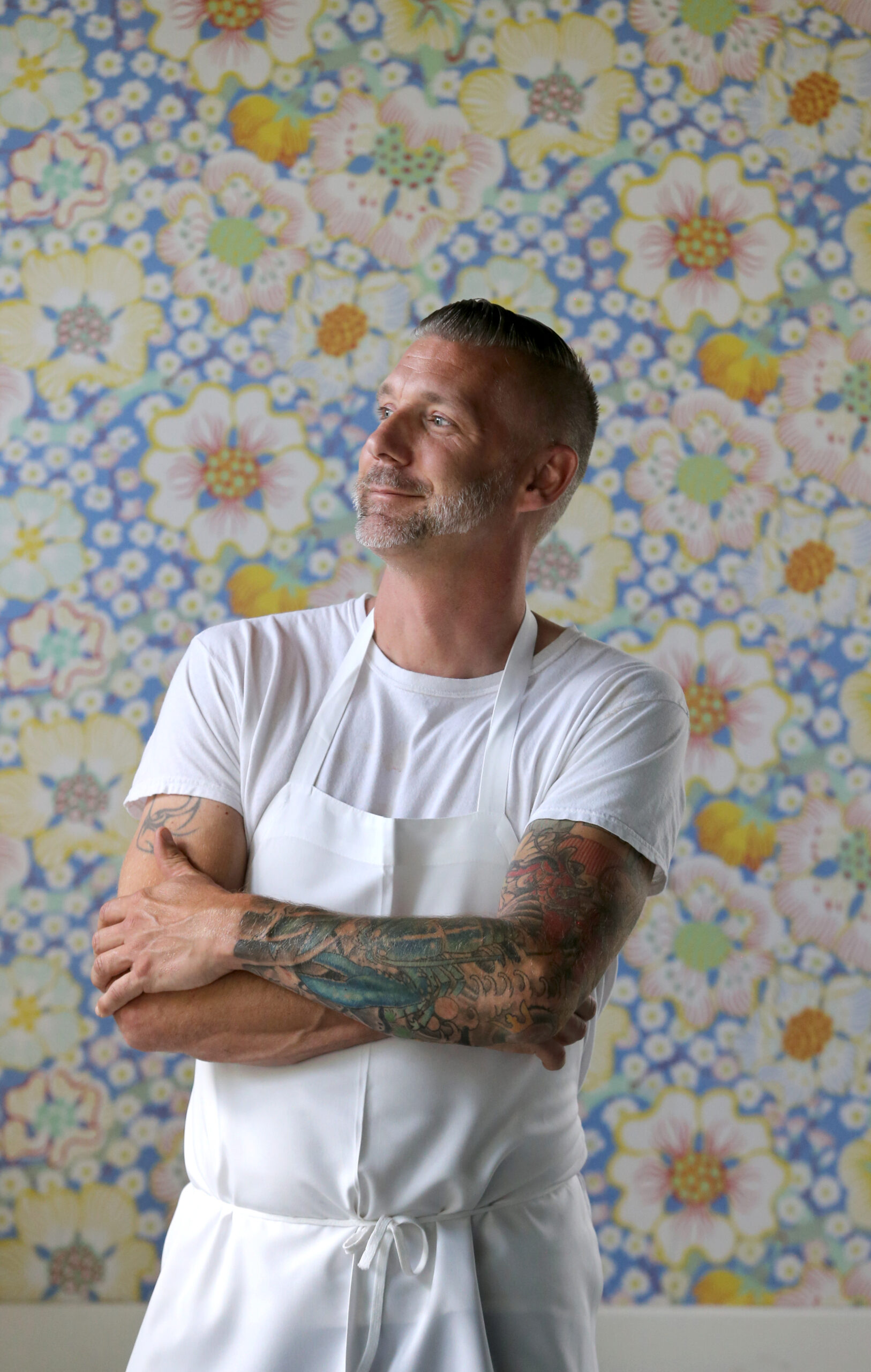
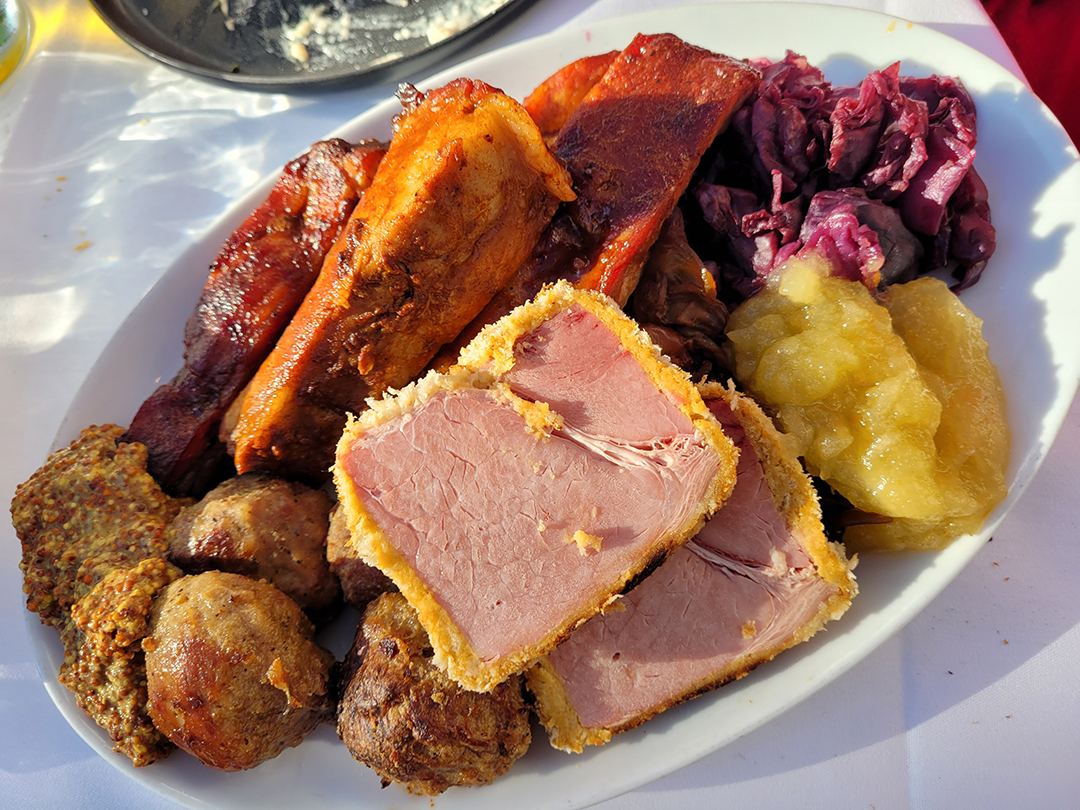
During the holiday season, Sundell has particularly fond memories of working at restaurants in Sweden, where glögg would be served to guests outside as they waited in the cold winter night before going inside to the warmth of the julbord.
The Swedish chef, like many of his countrymen, takes pride in keeping up culinary traditions. While he likes to incorporate foreign and modern influences into his cooking, his Stockhome julbord is a classic holiday meal, the kind you would find in a Swedish home on Christmas Eve (Swedes celebrate Christmas on Dec. 24).
Stockhome’s julbord ($90 per person; $50 for kids 5-12, free for kids 4 and under) has two seating times available — noon and 5 p.m. — on Sunday Dec. 4, 11 and 18. Reservations need to be made in advance by purchasing tickets online at stockhomerestaurant.com. Julbord is also available to-go on Dec. 23. 220 Western Ave., Petaluma, 707-981-8511.
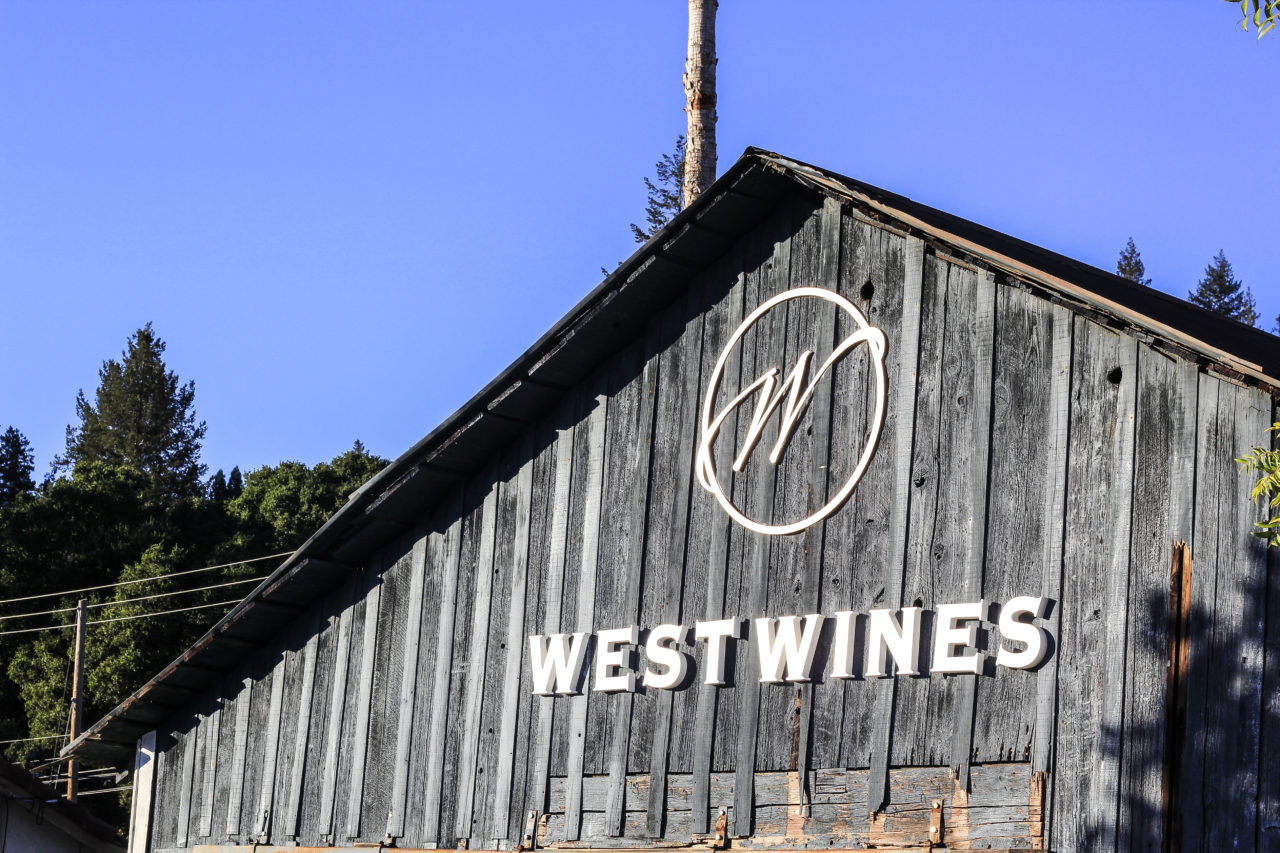
Sample glögg at West Wines, Healdsburg
Katarina Bonde and Bengt Åkerlind moved from Sweden to Seattle in 1992 and then made their way south to Healdsburg, where they started making wine. Their French-style wines can be found in the U.S. as well as in restaurants in their native country; their 2005 Cabernet Sauvignon Reserve was served at the 2010 Nobel Prize banquet in Stockholm.
Unable to buy glögg in the United States, Bonde has been making her own since the early ’90s. After opening the West Wines tasting room in 2011, she has been serving the drink to guests during an annual glögg party that takes place on the first weekend following Thanksgiving (this year, Nov. 25-27).
Bonde makes her glögg a couple of weeks before the party so that the flavors can blend together. In addition to the traditional ingredients — wine, brandy or cognac, cinnamon sticks, cloves and cardamom — she uses dried orange rinds and brown sugar, instead of the refined white version, as this lends extra flavor. She always saves a couple of bottles for the following year — according to Bonde, the year-old concoction tastes better than any other glögg.
“It’s my reserve,” Bonde laughs. But it’s clear that, like all Swedes, she takes glögg-making and drinking seriously. “Do not let your glögg boil,” she warns repeatedly when recounting her glögg recipe. (By now you have come to understand that boiling glögg is a Swedish cardinal sin.)
The annual glögg gathering at West Wines is one of the winery’s most popular events. Quarter Swedes, eighth Swedes; anyone who can claim even the tiniest bit of Swedish ancestry seems to show up for the party, says Bonde. And each year, there are increasing numbers of non-Nordic glögg converts. As is the Swedish custom, Bonde’s glögg is served with raisins and blanched almonds and is paired with ginger cookies, cardamom rusks (similar to biscotti) and other Swedish sweet treats.
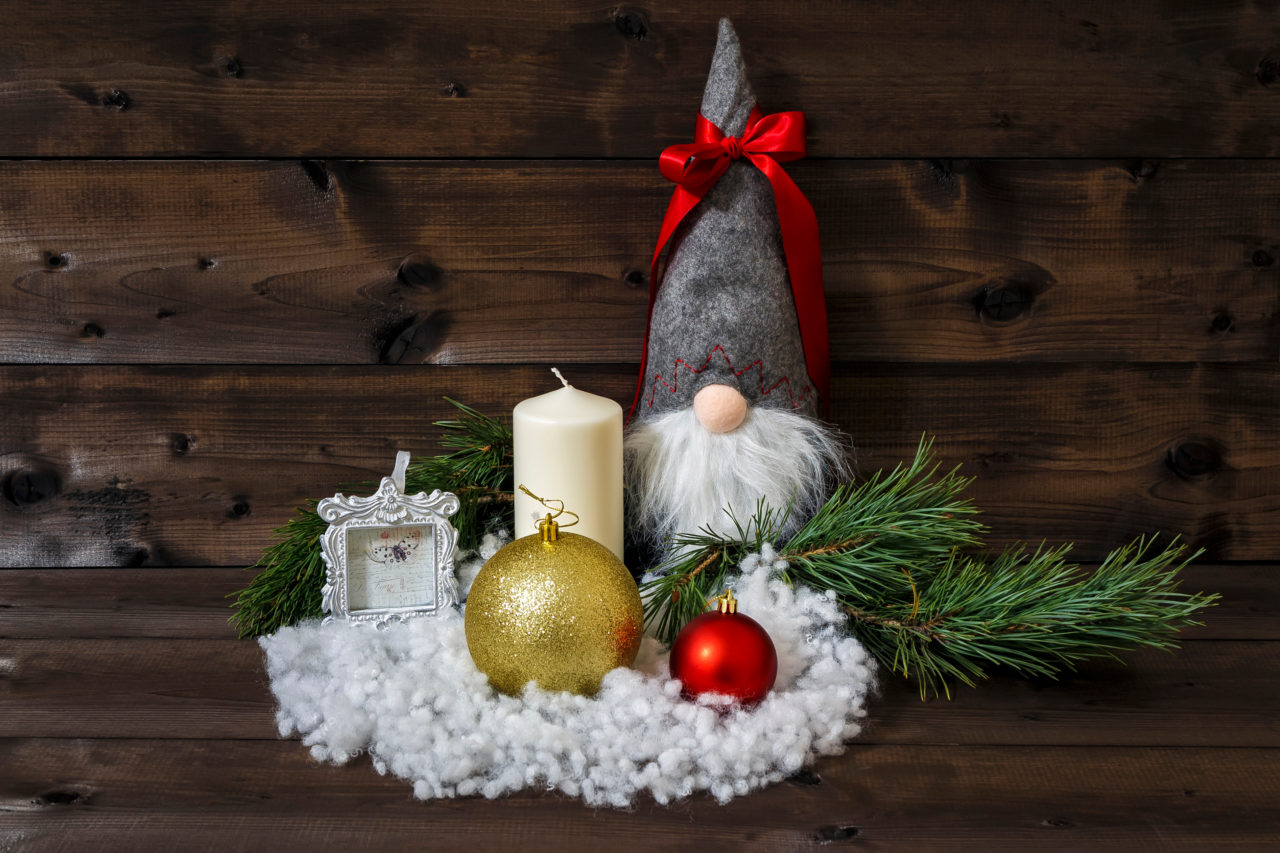
The Healdsburg tasting room is decked with handmade ornaments, which Bonde buys in Sweden. Each year, she brings a suitcase filled with straw yule goats, advent star lights and “tomtenissar” (gnomes) on a flight from Stockholm to San Francisco.
The Swedish gnome decorations are sold to guests throughout the holiday season, in addition to being on display in the tasting room. A word of advice, though: Treat your tomtenissar (gnomes) well. According to Swedish folklore, they act as guardians of the home. If treated well, they will protect your family from evil and misfortune. But the gnomes can also be short-tempered and mischievous. They are known to play tricks — even steal — if mistreated or offended.
The West Wines annual glögg party is Nov. 25-27 from 11 a.m. to 4 p.m. Reservations are recommended with walk-ins based on availability (last seating is at 4 p.m). $30 tasting fee includes glögg and cookies. West Wines, 1000 Dry Creek Road, Healdsburg, 707-433-2066, westwines.com.
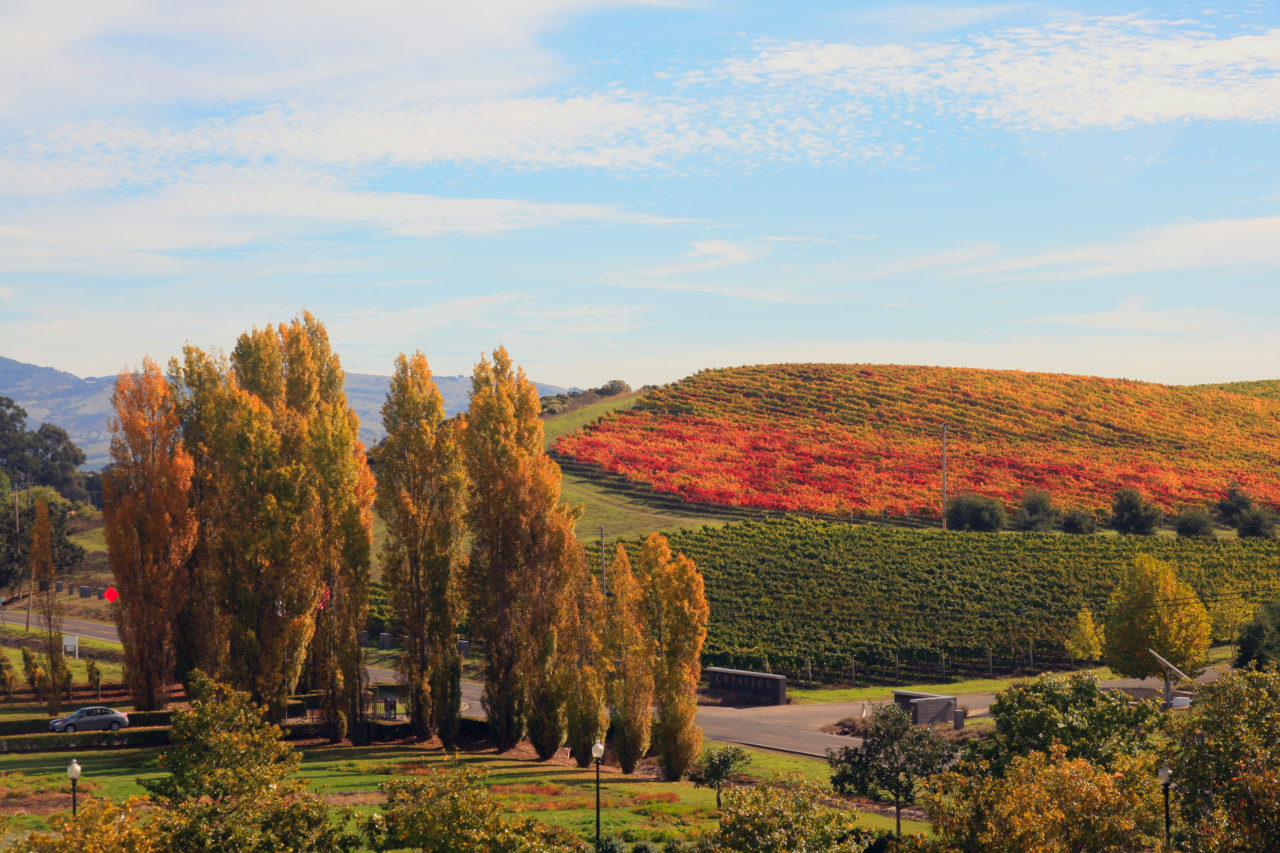
Order glögg from Sjoeblom Winery, Napa
Swedish native, winemaker and “glögg master” Mike Sjöblom makes his own version of the mulled winter drink using vintage syrah wine and spices imported from Sweden. In contrast to most Swedes, who tend to use less expensive red wine for their glögg, Sjöblom stresses the advantage of being a little bit more discerning.
“To make good quality glögg, it is imperative to start with a good quality wine,” says Sjöblom, who is one of only a handful of winemakers who use their own wine to make glögg.
The Napa vintner prefers to work with natural flavors: Full-flavored wine (“to bring forward the fruit”) and organic ingredients (“to create the characteristic glögg flavor”) are carefully blended. The use of this process eliminates the need for too much sugar, according to Sjöblom.
In Sweden, there are non-alcoholic versions of glögg. While Sjöblom is “not opposed” to these alternatives, bundling them together with traditional glögg is simply “going too far” in his opinion. Like Roberth Sundell of Stockhome and Katarina Bonde of West Wines, he likes to remind aspiring glögg makers to heat their drink carefully: “Remember, alcohol starts to evaporate at 78 degrees celsius (172 F).”
Those interested in sampling Sjöblom’s glögg every year can sign up to become member of his winery’s glögg club. Club members receive a 20% discount and are guaranteed a shipment of glögg. Non-club members can buy Sjöblom’s glögg for $25 a bottle on the winery’s website.
Purchase Sjöblom glögg at gloggclub.com. 707-363-6035.
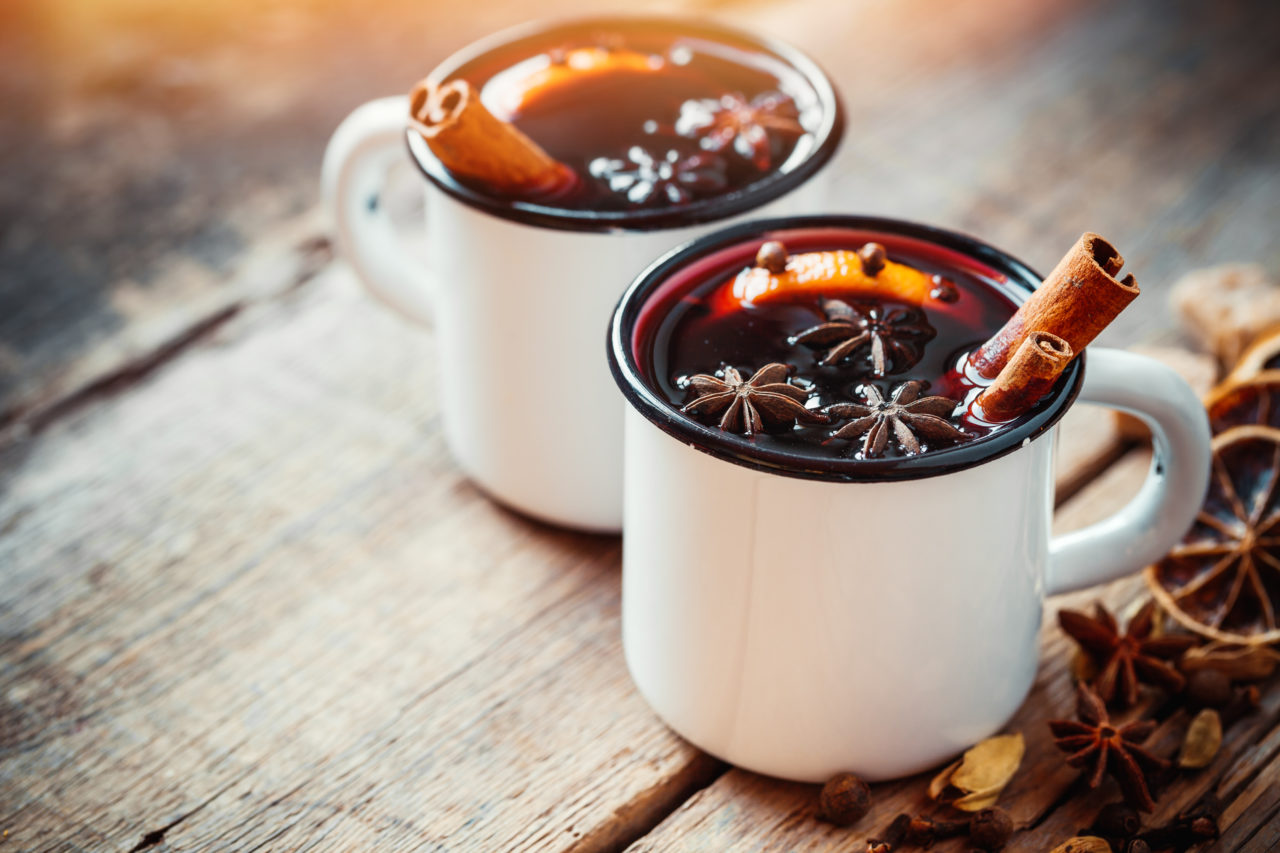
Throw your own glögg party
The following recipe is from Katarina Bonde of West Wines, who recommends using a drinkable but affordable red wine. Pair your glögg with Swedish saffron buns and ginger cookies.
West Wines Glögg
Makes 20-25 servings
2 bottles of full-bodied red wine (for example, a fairly fruity zinfandel or syrah)
1-2 cups of brandy or cognac
½ teaspoon cardamom seeds
5 cinnamon sticks (soak the cinnamon sticks in water beforehand to release the flavor)
20 cloves
2 strips of dried orange rind
1 knob fresh ginger
½ cup raisins
1 cup of sugar (brown sugar works best)
For garnish:
1 package regular raisins
1 package blanched, slivered almonds
Mix all ingredients and let simmer in a pot. Do not let it boil since the alcohol will evaporate and alcohol enhances the flavors from the spices. Let wine and spices cool off and pour into empty bottles or some other vessel that you can close. Let rest overnight and reheat when you want to use it (remember not to boil it). The glögg can be saved and used throughout the holiday season.
Serve in small cups and garnish with some raisins and almond slivers per cup. Make sure you also have teaspoons so the guests can get the soaked raisins out when they have finished the cup. They are great!


